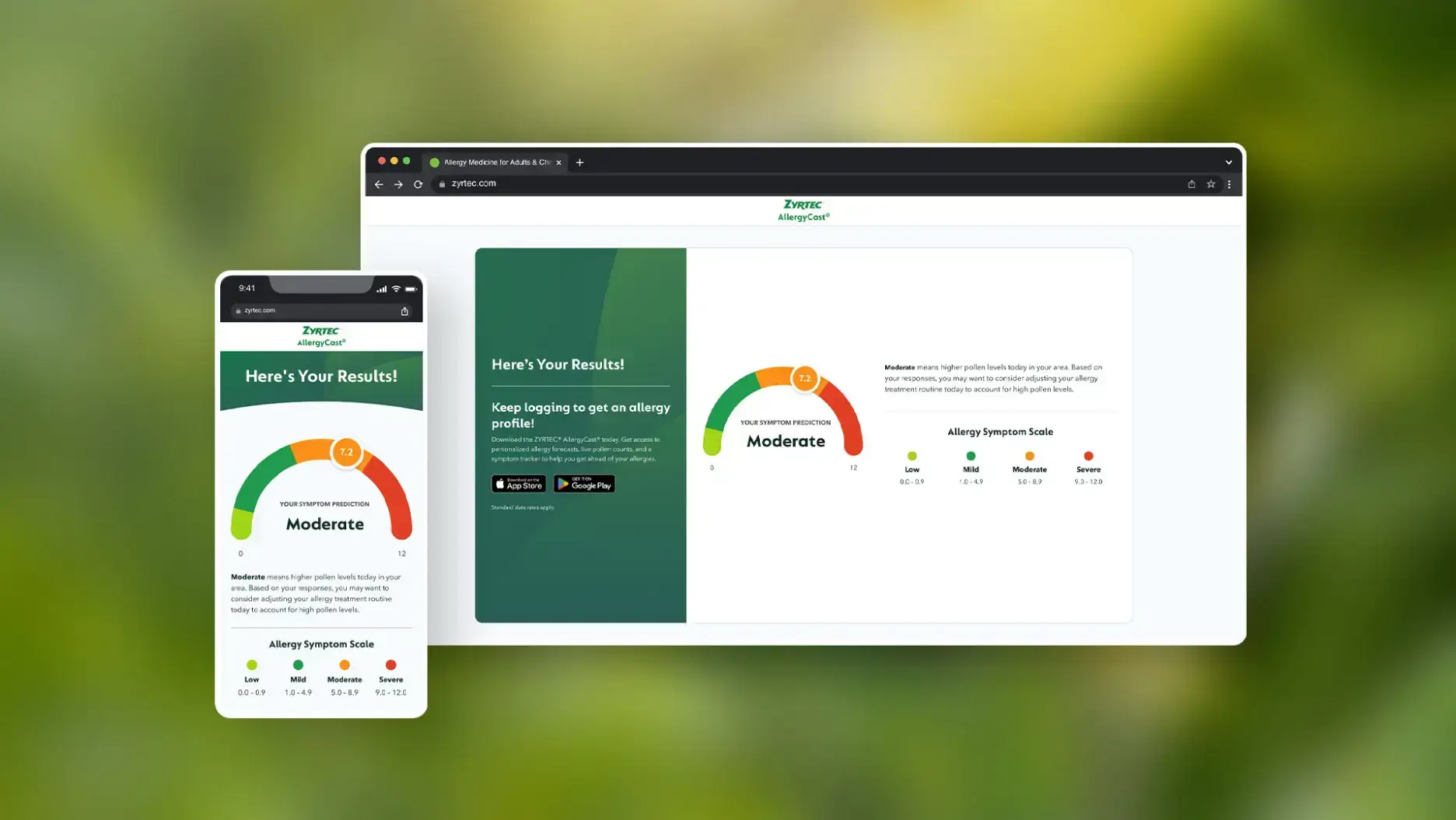The difference between allergies and a cold can be hard to work out based on the early signs. Both cause similar symptoms, such as a runny or stuffy nose, sneezing, fatigue, and a sore throat.
However, they’re very different issues – and knowing which you have is important, so you can ensure you get the best possible treatment1.
Fortunately, there are some key things that can help you tell if you’re coming down with a cold or experiencing allergies.
Discover what separates the two, how to identify one from the other and what to do if you experience symptoms with our useful guide.
Is It A Cold Or Allergies I’m Experiencing?
The common cold and allergies share some overlap in their symptoms, but there are ways to tell them apart.
What Is A Cold?
A cold is an infection that can be caused by more than 200 different types of viruses2. It usually affects your:
Nose
Throat
Sinuses
Trachea (windpipe)
Colds can be contagious up to two days before symptoms start, and can last for two weeks after exposure. There’s currently no cure for a common cold, but they’re generally mild and don’t normally result in serious health problems3.
What Are Allergies?
Allergies occur when your body’s immune system reacts to a foreign substance – such as pollen, mold, animal dander or certain foods4. For many people, coming into contact with these things will have no effect, but for those with allergies it can cause a reaction.
In this case, symptoms are a result of your body producing antibodies to fight off the allergen and remove it. As your immune system reacts, it can cause inflammation of your4:
Sinuses
Skin
Airways
Digestive system
Some allergies occur at a particular time of year, when the allergen is in the air. Symptoms can vary in terms of how long they last and their severity, depending on the allergen and your body5.
An important difference from colds is that they’re not contagious. Like the common cold, however, most allergies can’t be cured. That said, you can try to control and relieve your symptoms with an appropriate allergy treatment.
Cold Or Allergies
Want to quickly find out whether you might have a cold or allergies? Discover what may be causing you to feel sick, so you can get relief - and get on living your life!
Symptoms Of A Cold vs Allergies
Colds and allergies have plenty of symptoms in common, which can make working out the root cause of your illness difficult.
With both, you can experience6:
Runny nose
Sneezing
Stuffy nose
Fatigue, tiredness and weakness
To figure out the difference between allergies and a cold, you’ll therefore need to consider further signs.
Common symptoms of a cold that are rare or don’t occur as often with allergies can include7:
General aches and pains
Thick yellow or green mucus
Fever (mostly in children)
Common symptoms of allergies that you’re less likely to have with a cold8 can vary (depending on the allergen and severity of your reaction), but may include9:
Watery, red or swollen eyes
Itchy nose, eyes or roof of the mouth
Thin, watery and clear mucus
Facial swelling
When Do Colds And Allergies Occur?
The time of year you start to feel unwell can also be another way of telling the difference between allergies and a cold.
Generally, you’re more likely to get a cold in winter10, as cold viruses spread faster in cold weather and immune systems may be weaker at these times. However, it’s still possible to catch a cold any time of the year.
Seasonal allergies, meanwhile, normally strike in spring, when triggers such as pollen generally become airborne11. It depends on what you’re allergic to though, as trees, weeds, grass and other plants can pollinate at different times of the year in different locations.
It’s important to remember you can also experience allergies in fall and winter – for example, ragweed allergies are most common in September and October. Mold, meanwhile, can develop in wet, fallen leaves and as we spend more time indoors, winter allergies can become more prominent – due to things like dust mites and pet dander.
What Should I Do If I Think I Have Allergies?
If you’ve experienced any allergy symptoms, you should see a doctor to get a professional diagnosis and discuss your treatment options. They can confirm whether you have an allergy, advise on what may be causing your reaction, and suggest treatment to relieve your symptoms.
Possible options can include12:
Over-the-counter medication for allergy relief, such as the ZYRTEC® family of products
Avoiding your allergy triggers altogether – your doctor may suggest steps to do this
Immunotherapy, either through injections or tablets, to try to build up an immunity for severe allergies
Whether you experience sinus or nasal congestion from allergies, the symptoms can be uncomfortable and frustrating.
Download the ZYRTEC® ALLERGYCAST® app* to get a daily pollen forecast, and track your allergy symptoms.
*Standard data rates apply.
If Allergy Medicine Doesn’t Work, Is It A Cold?
If prescribed or recommended medicine isn’t working, there may be a few explanations.
Allergy medicine will not treat a cold (and vice versa). So, if you’ve started taking allergy medication without a proper diagnosis, you may just have a cold.
If you’ve had a professional diagnosis, it could be that you need to try another medicine13. If this is the case, speak to your doctor and they may suggest immunotherapy or another treatment.
Also, make sure you’re using allergy medications correctly – such as pointing nasal sprays the right way and following the directions on any packaging. You could have your local pharmacist help with drug administration if you are unsure how to use a product.

Your Personalized Pollen Prediction
We’re here to help! Let us know how you’re feeling by answering a few questions and we will give you a personalized pollen prediction.
References
https://www.mayoclinic.org/diseases-conditions/common-cold/expert-answers/common-cold/faq-20057857
https://my.clevelandclinic.org/health/diseases/12342-common-cold
https://www.mayoclinic.org/diseases-conditions/allergies/symptoms-causes/syc-20351497
https://www.mayoclinic.org/diseases-conditions/common-cold/expert-answers/common-cold/faq-20057857
https://my.clevelandclinic.org/health/diseases/12342-common-cold
https://www.mayoclinic.org/diseases-conditions/allergies/symptoms-causes/syc-20351497
https://my.clevelandclinic.org/health/diseases/8610-allergy-overview
https://www.cdc.gov/features/rhinoviruses/index.html,
https://magazine.medlineplus.gov/article/what-triggers-seasonal-allergies
https://www.mayoclinic.org/diseases-conditions/allergies/diagnosis-treatment/drc-20351503
Links to other parties’ articles and websites are provided for convenience only. Kenvue is not responsible for their content.



